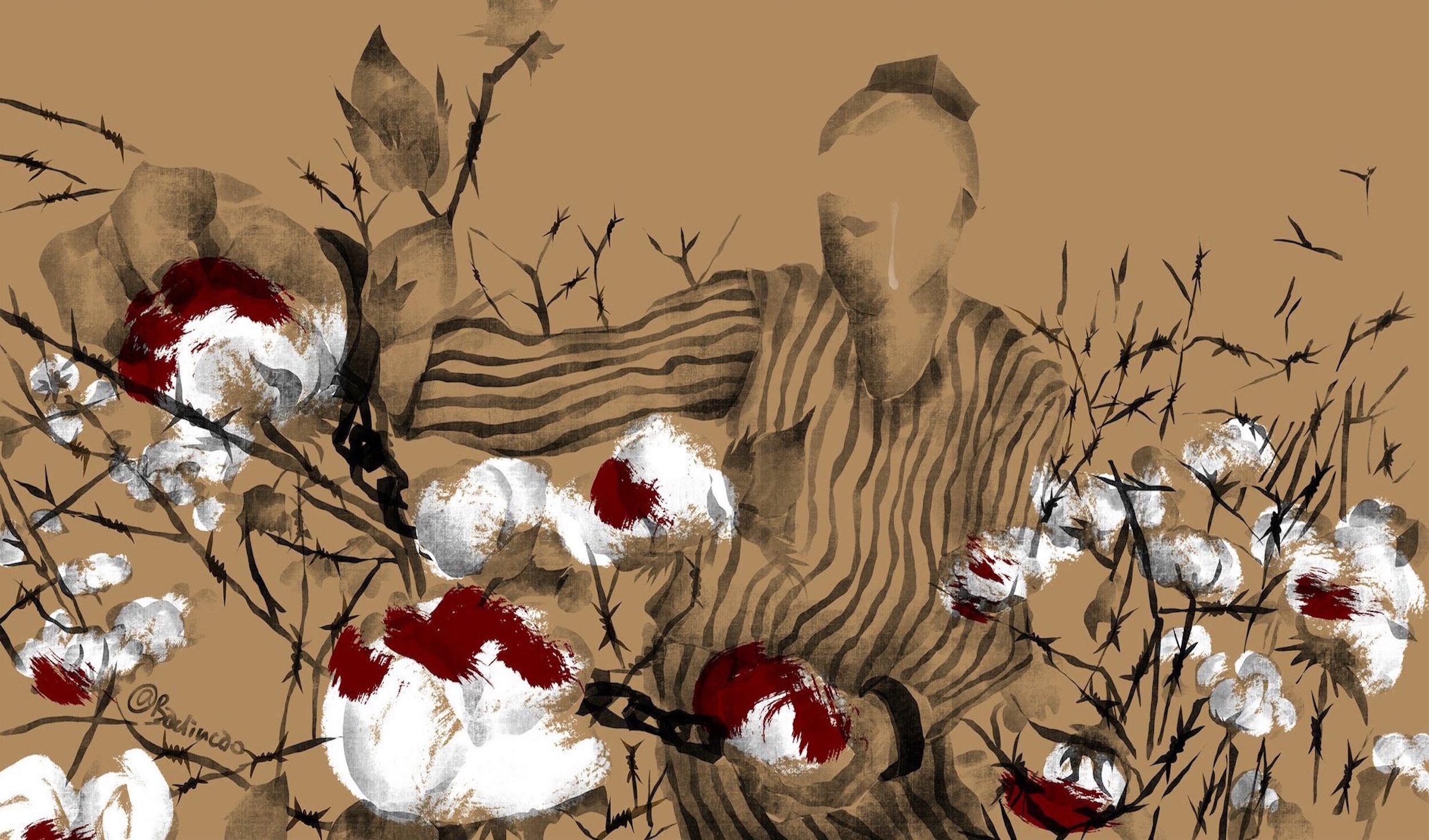AUDIE LAYARDA WRITES — In December 2020, word of forced labor, among other atrocities, in Xinjiang, China, surfaced. While forced labor in China isn’t new, the fact that the Xinjiang region supplies 20% of the world’s cotton pressured powerful figures to make statements. Amid allegations of torture and rape, the United States and other countries imposed strict sanctions on products from China, while the US Department of Homeland Security decided to ban any products from China that it suspects to be sourced from forced labor in Xinjiang.
Retail giants like Nike, H&M, and others, which unsurprisingly manufacture many of their products in China, are now under fire. Why? Because of their apparent reversal of policy from months-old statements that initially criticized labor camps in China. For example, H&M released a statement on March 2021 that began: “H&M Group is deeply concerned by reports from civil society organizations and media that include accusations of forced labor and discrimination of ethnoreligious minorities in Xinjiang Uyghur Autonomous Region.”
Yet in a recent statement, H&M avoided mentioning Xinjiang at all, instead focusing on its desire to “manage the current challenges and find a way forward.” So, they are working together with colleagues and stakeholders in China to develop and build a sustainable fashion industry-despite earlier statements.
The 11 brands that China is boycotting over allegations of forced labor in Xinjiang includes: H&M, Nike, Adidas, Converse, Burberry, Calvin Klein, Under Armour, Tommy Hilfiger, New Balance, Gap and Zara.
The catalyst for the recent uproar was a social media post by the Communist Youth League, a Chinese Communist Party group which criticized the brands. Not long after, movements on social media arose supporting Xinjiang cotton and calling for Chinese citizens to boycott these brands. Chinese e-commerce stores have pulled H&M and Nike products off of their virtual shelves, and Chinese celebrities have publicly condemned the brands—further fueling the firestorm targeted at these multinational brands.
It’s a clear and compelling choice: Between curtailing a large consumer and supplier market in China or maintaining the market while looking away from major violations of human rights. It’s obvious which choice H&M made.

